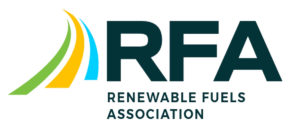 In September, Colorado released a public comment draft of its Greenhouse Gas Pollution Reduction Roadmap which details proposed steps the state can take toward meeting the near-term goals of reducing greenhouse gas (GHG) pollution 26% by 2025 and 50% by 2030 from 2005 levels.
In September, Colorado released a public comment draft of its Greenhouse Gas Pollution Reduction Roadmap which details proposed steps the state can take toward meeting the near-term goals of reducing greenhouse gas (GHG) pollution 26% by 2025 and 50% by 2030 from 2005 levels.
Noting that transportation is one of the largest sources of GHG pollution, the Colorado plan suggests:
Transitioning to close to 100% electric cars on the road by 2050 and 100% market share for new vehicle sales of zero emissions trucks and buses by 2050; and
Adopting lower carbon fuels including advanced biofuels, renewable natural gas and hydrogen for hard to electrify sectors such as aviation and some heavy trucks
 In comments on the plan submitted Friday, Renewable Fuels Association Vice President of Regulatory Affairs Kelly Davis, told the Colorado Energy Office that the internal combustion engine is “far from dead – the fuel just needs to be changed” with a low-carbon or clean fuel standard that can help Colorado slash greenhouse gas pollution.
In comments on the plan submitted Friday, Renewable Fuels Association Vice President of Regulatory Affairs Kelly Davis, told the Colorado Energy Office that the internal combustion engine is “far from dead – the fuel just needs to be changed” with a low-carbon or clean fuel standard that can help Colorado slash greenhouse gas pollution.
“A properly designed, fuel neutral, LCFS or Clean Fuel Standard encourages GHG reductions via market forces,” Davis wrote. “LCFS/CFS programs are already in effect in California, Oregon and British Columbia, and have been discussed in other parts of the U.S., including Washington, New York and the upper Midwest. A science-based standard can drive technological innovation, stimulate investment in clean energy, reduce climate change emissions from the transportation sector, and decrease fossil fuel consumption.”
Davis also noted these programs “enable an increasingly diverse fuel supply, thus creating competition, encouraging innovation and developing greater market opportunities while improving air quality.”

